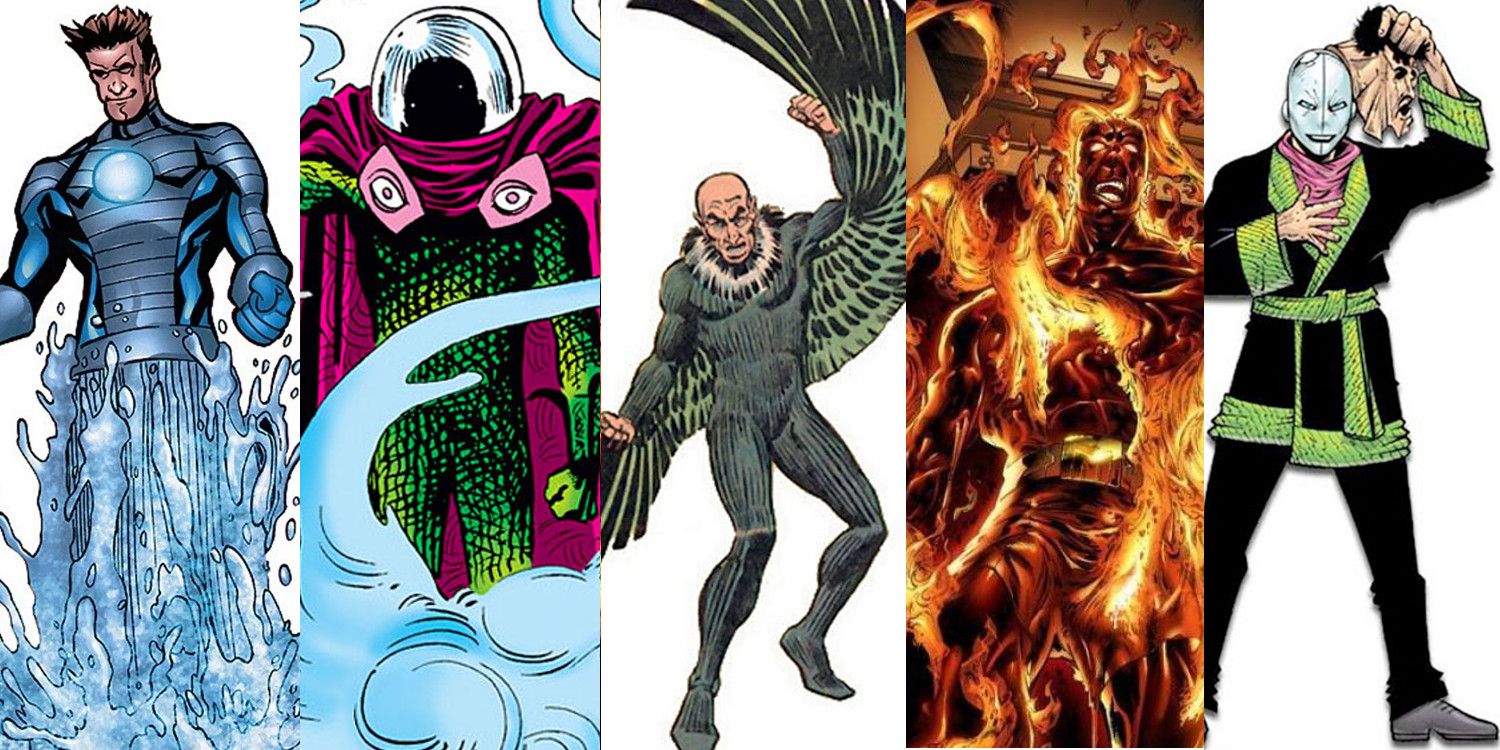The unexpected box office success of Sony’s Venom could have a substantial impact on the Marvel Cinematic Universe. While many industry experts and critics had written off Sony’s attempts to turn its Spider-Man license into a viable superhero franchise independent of Marvel Studios, few could have predicted how financially successful it would end up being. Venom’s reviews were decidedly mixed, although that did little to discourage audiences who turned out in droves.
Against a reported budget of $100 million, Venom has grossed over $210 million domestically. Yet its real success lies in its international grosses. Venom opened in China with a staggering $111 million; that's the second highest ever debut for a superhero film in the market as well as Sony's largest debut ever in the country. Overall, Venom’s international grosses now exceed $780 million, which makes it the sixth highest grossing movie of 2018, ahead of Deadpool 2 and Ant-Man and the Wasp. What was widely written off as an inevitable flop has become one of the year’s real success stories. It’s also given Sony the seal of approval for its much-mocked Spider-verse.
Related: Every Spider-Man Villain Spinoff Sony is Developing
Sony’s Marvel franchise exists in a curious state of limbo. It’s not officially part of the MCU and there are no official plans for the two to merge, but it’s clear to anyone who watches Venom that Sony’s ultimate aim is for Spider-Man’s iconic villains to one day stand alongside (or against) The Avengers. Now that Venom is a bonafide success story in its own right, though, things are shifted, to the point where Sony's successes could have a substantial impact on Marvel Studios.
- This Page: How Venom Impacts Spider-Man In The MCU
- Page 2: How Venom Could Change The MCU
Venom’s Success Makes an MCU Crossover More Likely
Currently, Marvel Studios, part of The Walt Disney Company, own the rights to the vast majority of the Marvel expanded universe. Once the merger with 20th Century Fox is completed, they will also have the X-Men, Fantastic Four and Deadpool under their control. Spider-Man and his universe fall under the umbrella of Sony. In 1999, at a time when Marvel was financially struggling, they sold the film rights to Spider-Man to Columbia Pictures, a subsidiary of Sony. As a result, Sony owns the film rights to over 900 Marvel characters, so it's no surprise that the studio is keen to make their own franchise as expansive as possible. While the MCU and Sony's franchises remained totally separate for much of the early 21st century, after The Amazing Spider-Man 2 proved critically and financially disappointing, the latter seemed to change track.
Soon a deal was struck; Sony would finance Spider-Man movies set in the MCU, while Marvel could also use Peter Parker et al in team-ups with the Avengers. This led to Tom Holland's Spidey joining the MCU, appearing in Captain America: Civil War, Spider-Man: Homecoming and Avengers: Infinity War, with future appearances in Avengers 4, Spider-Man: Far From Home and more in the pipeline. Aside from this, Sony started building their own shared universe in a bid to have a Spider-Man movie more frequently than once every two years.
Sony's desire for that spinoff universe to be in the MCU comes from positive branding, while Marvel's reluctance was deemed to come from the unproven nature of Venom, Morbius and others. However, now Venom is a proven hit (it's made more than every MCU origin movie aside from Spider-Man: Homecoming and Black Panther) there's considerably more motivation on the Disney side to reach some sort of crossover deal.
Related: Is Venom In The MCU? Marvel/Spider-Man Movie Rights & Shared Universes Explained
The Marvel/Sony Spider-Man Deal Could Change
For many MCU fans, the dream is for all Marvel properties to be under the control of one studio, thus ensuring maximum cross-over potential and a true expansion of the franchise as envisioned by the source material. The Fox merger with Disney is a big step towards that, and it's clear that the potential is there for Sony to dive further into that particular pool. However, the success of Venom may actually stop such things from happening.
According to box office analysts, Venom's financial success may end up invigorating Sony to the point where they feel like they don't need Marvel Studios' help anymore. This would mean the relationship between the studios would get weaker, not stronger, perhaps even putting strain on Peter Parker's presence in the MCU.
Bringing in over $780 million worldwide against the odds and making a bigger mark in China than your competition is good enough reason for Sony to feel confident in their Spider-verse game plan, with or without Marvel Studios'. Indeed, they may hold more bargaining chips on that front than the home of the MCU in that current context. With real money in the bank, Sony has little reason to give into Marvel Studios or sell the Spider-Man rights over wholesale.
Page 2: How Venom Could Change The MCU
More Spider-Man Villains May Be Off-Limits For Marvel
The crux of Sony’s Spider-Man villain universe lies in the rich, varied and iconic slate of villains that Peter Parker has faced up against over the years: from the Green Goblin to Doctor Octopus to Venom to Carnage and much more. While many of these characters have already been seen in other Spider-Man films, a lot of the fan favorites have yet to make their way to the big-screen. Venom’s post-credits scene promised Woody Harrelson's Carnage and reports indicate plans bring in everyone from Black Cat to Jackpot to Nightwatch. In the light of Venom's success, even obscure characters like Silk seem more probable to get a movie.
Related: Venom 2 Will Have To Change Carnage's Origin
This too could have an impact on the MCU. So far, there's been no real overlap between characters rumored for Sony solo movies and villains primed to appear in MCU Spider-Man films; it's been assumed that the two companies work to keep things exclusive. With Venom's success, there'll be more Spider-Man villain movies and thus fewer characters for Marvel to pick from. Why let Carnage be a second tier supporting villain in the MCU, fighting for screen-time with more established figures, when he can be dominant in his own movie or front and center as Eddie Brock’s next fight?
Now, Marvel Studios aren’t short of villains for Peter to fight on their own turf, but Sony may limit that going forward even if the deal doesn't change.
Venom Teaches The MCU A Lesson
Marvel Studios have done a remarkable job of establishing a consistent style and tone over the past decade. While some movies deviate into stylistic changes – for example, the neon-tinged retro nature of Thor: Ragnarok or the afrofuturism of Black Panther – ultimately audiences can watch the franchise and know, from film to film, exactly what they’re getting. They have, for the most part, eschewed the darker, more realist approach of their competition over at DC, and that has worked wonders as audience tastes shift. Sony’s big problem in establishing their own franchise was in finding a suitable style and tone that helped them stand out from the competition but wasn’t too disconnected from the MCU, just in case a crossover were ever to happen.
Venom is a curious movie in that, visually, it’s a darker style than its MCU counterparts, but its tone is also surreal and goofy. Sure, Venom may be a slick black parasite that eats people’s heads but he’s also a wise-cracking sidekick to Eddie Brock, who indulges in banter and casually dives into lobster tanks in restaurants. It’s a completely unexpected direction to take a Venom story in, given that the character is typically associated with an edgier tone. Instead, Venom is somewhere between a buddy comedy, a superhero movie, and a sci-fi-horror. It doesn’t always work but when it’s firing on all cylinders, it’s an absolute blast to watch.
Related: Venom's Bad Reviews Completely Misunderstood Venom
Venom proves that taking well-known characters out of their comfort zones and playing with audiences’ expectations of them can pay off in a big way. It can be risky – there’s a reason everyone thought Venom would flop – but the benefits are also worth discussing. The MCU is unlikely to change direction any time soon since their own robust formula has proven near indestructible, but it may give filmmakers more freedom to consider their options. There is certainly room in their franchise for contrasting tones and styles.
Venom’s success offers a glimmer of variation in an increasingly saturated blockbuster market, but its future is inextricably tied to the MCU in the eyes of fans and the industry alike. For many, Venom will be incomplete without Spider-Man and the rest of Marvel’s universe by its side. Sony have far more options for their long-term business plan now that Venom is an undisputed success. The interesting part will be in seeing where they go when they have all the choices in front of them.







